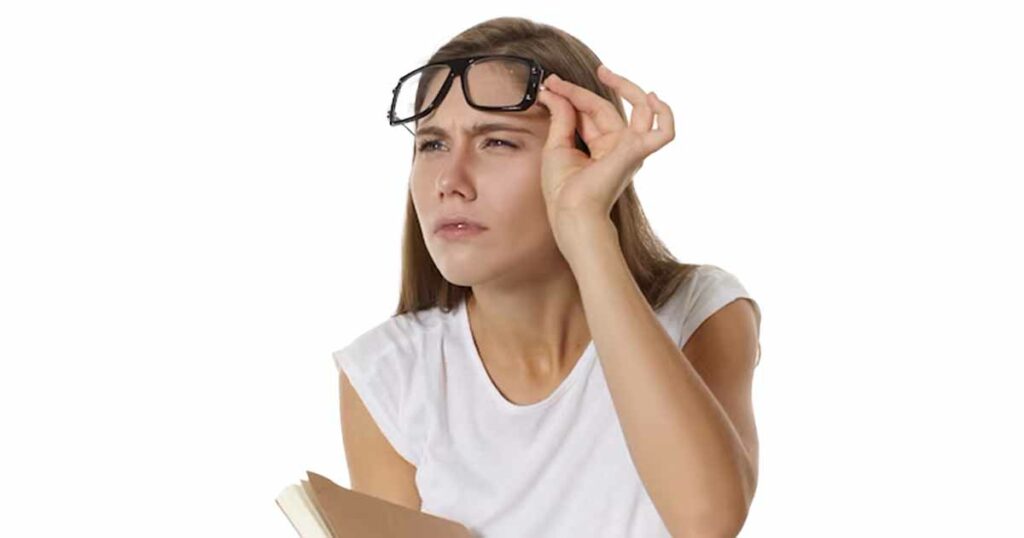Vision issues are increasing worldwide, especially among children and younger people. It’s estimated that more than 50% of the global population will be myopic or short-sighted by 2050. Poor vision impacts daily life in many ways, and when left unaddressed or untreated, it could lead to more severe complications and hamper your quality of life even further. Academic performance is one of the many aspects of life that low vision can affect. You can have trouble performing tasks, focusing in class, and even socializing with peers. As a result, your grades and social life can suffer, making your time in school more challenging to manage. Additionally, the growth of online learning and tutoring can lead to increased digital eye strain and discomfort without the right measures. Fortunately, there are ways to address vision issues and perform well academically.
How vision affects your academic performance
Difficulty performing tasks
Poor vision can make it harder for you to participate and follow during lectures, making tasks more challenging. Reading text, especially small or poorly-contrasted print, can be difficult. You can suffer from a slower reading speed, reduced comprehension, and eye strain. Taking notes from lectures or copying information from the board can also be a struggle due to blurry vision, affecting information retention and participation in class. Without the essential knowledge you can gain from textbooks, presentations, and notes, it can be hard to do assignments, projects, group work, and more, affecting your grades.
Reduced ability to participate in classroom activities
Activities involving visual elements, such as group discussions, science experiments, or art projects, may be challenging to participate in fully. Presenting in front of the class can also be a struggle, as low vision can prevent you from engaging with viewers or seeing the text on the board or screen. Insufficient contributions may lead to lower grades, participation scores, or marks in peer-reviewed work. Missing out on enriching experiences can prevent you from making the most of your classes and having fun.
Social isolation
Low vision can sometimes lead to social isolation, anxiety, or self-esteem issues. It can be difficult to participate in social activities due to a lack of confidence or inability to notice non-verbal social cues, leading to loneliness. This can indirectly affect academic performance by impacting motivation and engagement; you may feel discouraged from performing your best in class and extracurriculars. A lack of socialization can also prevent you from accessing a solid support system to help with challenging times and celebrating achievements.
How to address low vision
Regular eye exams
Eye exams are crucial, not just for providing visual clarity but also for spotting eye conditions that can worsen vision. Your doctor will assess how well your eyes see, how well they work together, and your risk of eye diseases like age-related macular degeneration, cataracts, glaucoma, and more. Early detection of these issues can help you and your doctor find the best preventative measures. Since you’re still young, it’s recommended that you get your eyes checked every year or every two years since your vision can still change. You can check if your school offers eye care programs that give you access to free or low-cost eye exams.
Get or update your prescription glasses
Getting a new or updated pair of glasses can help you correct your vision and see more clearly. You can easily find prescription glasses online, where you can browse through styles from top brands like the Ray-Ban Wayfarer Ease Optics or the Tory Burch TY2129U. You can input your updated prescription after getting one after an eye exam and add more customization options like blue-light blocking lenses or anti-glare coatings to suit your specific vision needs. Glasses can help you achieve visual comfort and clarity, helping you perform better and participate more in class since you aren’t distracted or uncomfortable.
Try assistive technology
If you have a more severe vision impairment that isn’t easily corrected with glasses or contact lenses, you may want to explore assistive devices to enhance your vision further. Optical aids like magnifying glasses can enlarge text and help you read your textbooks or test papers. Telescopes or binoculars can be used to see faraway objects. Other non-optical devices, like audiobooks or e-readers, can help you gather information innovatively and conveniently. You can adjust the settings to help you see or hear better and engage with learning material.
